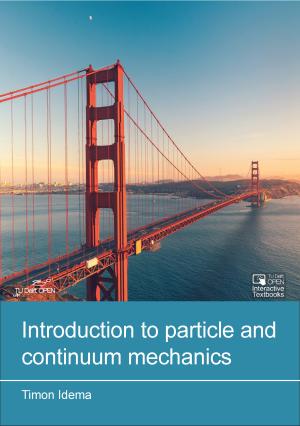Introduction to particle and continuum mechanics
Synopsis
In Introduction to particle and continuum mechanics, we study the classical physics of both collections of particles and continuous media. Taking Newton’s laws of motion as our axioms, we develop the theory of motion without the need for prior knowledge, with a particular focus on the laws of conservation of energy, momentum, and angular momentum. The relevant mathematics is provided in an appendix. The text contains various worked examples and a large number of original problems to help the reader develop an intuition for the physics.
In the first part, the focus is on particle physics, with applications to rockets, billiards, fictitious forces, spinning tennis rackets and the solar system. Next to Newtonian mechanics, we also study the Lagrangian formalism, which is particularly useful for systems with constraints, and generalizes to both quantum and relativistic systems. In the second part, we move to continuum systems, studying solid deformations, fluid flows, and the laws of thermodynamics, which give rise, among others, to heat engines, waves, and encounters with viscoelastic materials, with properties in between those of ordinary fluids or solids.
Downloads




